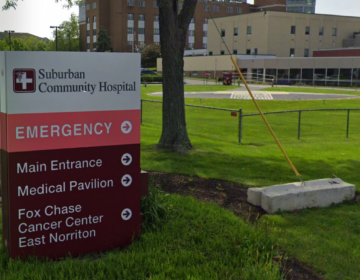Profitable mental health service provider under Medicaid/Medicare investigation
Business is booming for the Universal Health Services, one of the largest providers of psychiatric care in the region and nationwide, according to a new report from the Pennsylvania Health Care Cost Containment Council. The report showed that four of the five most profitable mental health clinics in Pa. are now operated by UHS.
The Philadelphia Inquirer analyzed the numbers for a recent report.
But that same company has also been the subject of a federal investigation into Medicare and Medicaid billing fraud since 2012. Nearly 40 percent of the $8 billion in revenue UHS generates annually comes from Medicare and Medicaid reimbursements.
Prior to the launch of the federal probe, UHS had agreed to multi-million dollar settlements in lawsuits alleging the company falsified documents and submitted bogus medicare claims, while offering substandard psychiatric counseling.
Gerard Anderson, Director of Johns Hopkins Center for Hospital Finance, said medical conglomerates across the country were submitting more claims for service in an attempt to evade new price controls for Medicare and Medicaid, introduced by the Affordable Care Act.
“What you see is that hospitals are billing for things that don’t happen, doctors are billing for things that don’t happen. And most commonly in the home health area what you’ll see is people saying ‘I went to this person’s house’ and they actually never did,” Anderson said.
UHS is the product of decades of mergers and acquisitions with smaller healthcare firms, today operating about 200 clinics in the United States, including Friends Hospital, Philadelphia’s main mental health intake center. The federal probe had originally focused on corporate subsidiaries, but was expanded this year to the parent company, based in King of Prussia.
The company is just one of several large care providers under scrutiny for excessive billing practices nationally. Anderson said similar practices were likely to become more common as networks of care providers got larger and more sophisticated,
“As hospitals get larger, what you’re more likely to see is more claims,” he said. “You learn how to do the billing more effectively. If I’m an individual doctor I don’t know how to do billing, I might have some low level technician doing it for me. If I’m a whole conglomerate of hospitals and doctors, I can hire the best people to tell me how to get every dime possible from the government. It’s a real art, it’s a lucrative art.”
UHS announced last week it was paying out dividends to shareholders following two quarters of double-digit increases in patient revenues. The company’s CFO, Steve Filton, said in an email that there was no connection between the investigation and the financial performance of their facilities.
Filton noted that their top-earning facilities in Pa. had earning accolades for service quality and that “69 separate UHS behavioral health facilities have received the Joint Commission’s designation as a Top Performer on Key Quality Measures including four facilities in Pennsylvania.”
WHYY is your source for fact-based, in-depth journalism and information. As a nonprofit organization, we rely on financial support from readers like you. Please give today.




